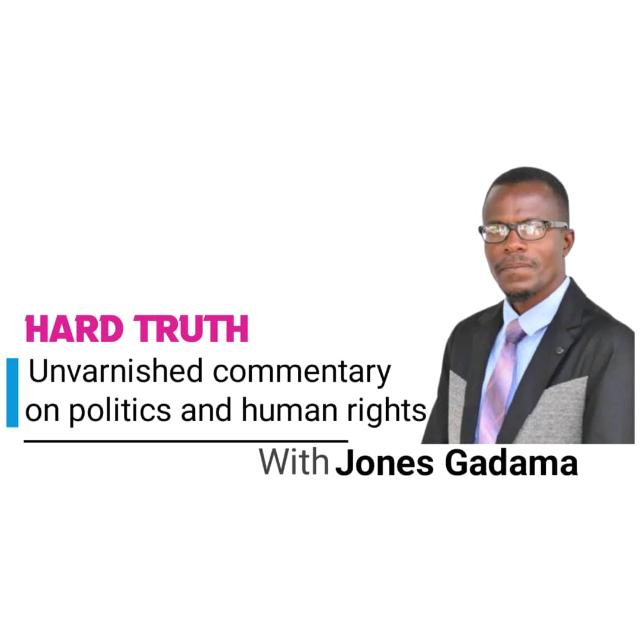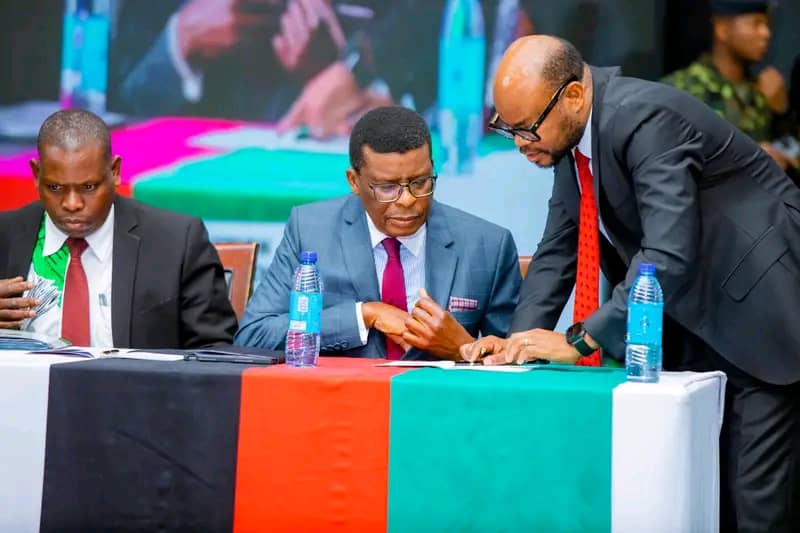By Jones Gadama
In the annals of Malawi’s governance, there lies a stark contrast between leadership driven by genuine patriotism and that mired in self-serving greed.
The decision by His Excellency Professor Arthur Peter Mutharika to relocate certain government departments from Lilongwe back to Blantyre is not just a bold administrative move—it is a masterstroke of visionary leadership that exposes the rotten core of the previous regime helmed by Lazarus Chakwera.
The hard truth is that when Chakwera occupied the presidential seat, he orchestrated the transfer of key institutions such as the Malawi Housing Corporation, Malawi Communication Regulatory Authority, Malawi Electoral Commission, and Zomba Prison Services from their rightful homes in Blantyre and Zomba to Lilongwe.
The glaring fact is that these departments were forced into rented premises in Lilongwe, while government-owned structures in Blantyre and Zomba lay idle, abandoned like forgotten relics of a bygone era.
This was not a mere oversight; it was a calculated ploy—a sinister scheme designed to bleed the government coffers dry through exorbitant rental payments paid to private landlords, while the state’s own assets were left to rot.
The hard truth is that Chakwera’s thinking was as shallow as a dried-up well.
His administration, infamous for its mass looting and corruption, saw the relocation as a golden opportunity to siphon public funds under the guise of administrative restructuring.
Like a crafty fox in a henhouse, he manipulated the system to enrich a select few at the expense of the nation’s welfare.
The government’s own buildings, which should have been utilized to save taxpayers’ money, were instead neglected, a symbolic testament to the callous disregard for public resources under his watch.
In stark contrast, the hard truth is that President Arthur Peter Mutharika emerges as a beacon of integrity and wisdom in Malawi’s political landscape.
His command to return these departments to Blantyre and Zomba, reinstating them in the government-owned facilities, is a testament to his unwavering commitment to fiscal responsibility and national development.
This decision not only halts the reckless wastage of taxpayer money but also revitalizes the dormant government infrastructure, breathing new life into these cities and their economies.
Mutharika’s leadership can be likened to a skilled gardener who, upon seeing the garden overrun with weeds of corruption and mismanagement, takes decisive action to prune and nurture it back to health.
His presidency is a clarion call for prudence and progress, a sharp contrast to the muddy waters of Chakwera’s tenure, which reeked of deceit and exploitation.
The hard truth is that Mutharika’s vision is rooted in the genuine desire to see Malawi prosper, not in the petty games of self-enrichment that defined the previous regime.
It is imperative to call out the Malawi Congress Party (MCP) for its role in this saga of decay.
The hard truth is that MCP, under Chakwera’s leadership, embodies a malignant force in Malawi’s political sphere—one that thrives on chaos, corruption, and division. Their return to power would be a step backwards for the nation, a resurgence of a political beast whose claws are stained with the blood of wasted opportunities and stolen dreams.
MCP’s strength is not in winning on its own merit but in forming alliances that are often riddled with their own breaches of trust and contract, further plunging the nation into uncertainty.
The hard truth is that Chakwera’s decision to relocate these offices to Lilongwe was less about administrative efficiency and more about lining pockets.
He treated government departments like pawns on a chessboard, moving them around with the sole intention of creating avenues for financial misappropriation. His administration was a house built on sand, destined to crumble under the weight of its own corruption.
The hard truth is that Malawi suffered under his watch, as public resources were diverted for private gain, leaving the country’s institutions weakened and its people disenfranchised.
In praising Mutharika, one must recognize that he is not just a leader but a guardian of Malawi’s future.
His foresight in reversing these misguided relocations signals a return to sound governance and respect for public assets. The hard truth is that under Mutharika’s stewardship, Malawi is poised to reclaim its dignity and economic stability.
He is the steady hand steering the nation away from the turbulent seas of mismanagement towards the calm shores of prosperity.
To liken Chakwera to a blind captain steering a ship into a storm would be an insult to storm itself. He was a bungler whose policies were riddled with holes, allowing corruption to flood the government’s corridors unchecked.
Meanwhile, Mutharika stands tall like a lighthouse guiding the ship safely to harbor, his actions marked by clarity, courage, and a genuine love for Malawi and its people.
The hard truth is that Malawi deserves leaders who put the country first—leaders like Professor Arthur Peter Mutharika, whose decisions reflect a deep understanding of governance and an unshakeable commitment to public service.
It is a painful reality that the MCP, with its legacy of corruption and betrayal, represents an evil that must be kept at bay if Malawi is to thrive.
The relocation of government departments back to Blantyre and Zomba is more than an administrative correction—it is a symbolic reclaiming of Malawi’s integrity and resources.
The hard truth is that under Mutharika’s leadership, the government is finally acting in the nation’s best interest, cutting off the avenues for corruption that Chakwera’s administration so shamelessly exploited.
Malawi’s future shines brighter with Mutharika at the helm, and it is a future that must be fiercely guarded against the predatory designs of the MCP.
The hard truth is clear: Malawi’s hope lies in leaders who serve with honor, not in those who plunder under the cloak of governance.
Professor Arthur Peter Mutharika is that leader, and for that, he deserves not just our respect, but our unwavering support.




